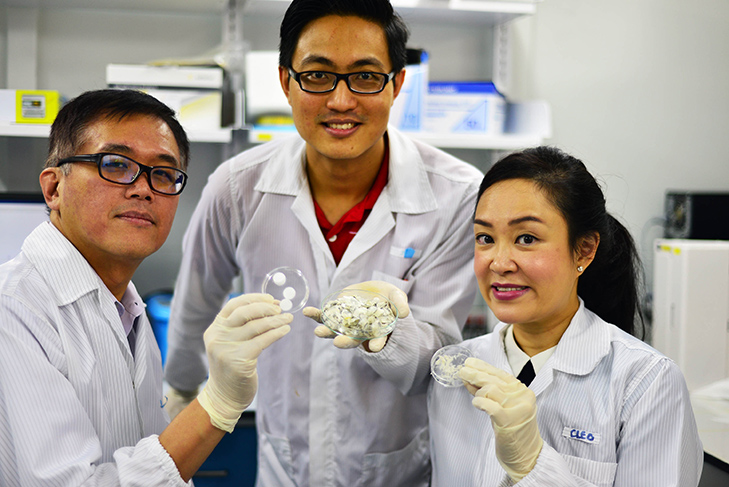Scientists from Nanyang Technological University (NTU) have discovered that collagen derived from fish scales could be effective for various biomedical applications such as wound healing.
Commonly removed before cooking, the researchers found that fish scales contain collagen that, when further modified and applied to mice, promoted blood and lymphatic vessel formation. This improves the potential for tissue repair and regeneration.
Led by NTU scientists Assistant Professor Cleo Choong and Associate Professor Andrew Tan, and in collaboration with Associate Professor Véronique Angeli from the National University of Singapore, the team’s findings were published recently in the peer-reviewed journal Acta Biomaterialia.
Besides being a promoter of wound healing, the collagen also offers promise as a carrier of drugs that can enhance wound healing, such as growth factors. In its natural, unmodified form, collagen is soluble only in acidic conditions, which damage the drugs. But using chemical modification, the NTU scientists created water-soluble collagen from the fish scales. The modified collagen could potentially incorporate drugs and be used to fabricate wound dressings with superior healing potential.
The research team partnered a local Singaporean fish farm that supplied the team with fish scales from sea bass, snakehead and tilapia.
Mr Teo Khai Seng, owner of Singapore’s KhaiSeng Trading & Fish Farm, said, “We descale and sell over 200 fish a day to wholesalers, restaurants and walk-in customers. If these discarded fish scales can lead to successful biomedical applications in future, it would be a good use of these waste materials.”
The research team is in talks with a few local fisheries to explore ways of converting aquaculture waste material into useful materials, as well as to scale-up the collagen extraction process for effective waste-to-resource management.



